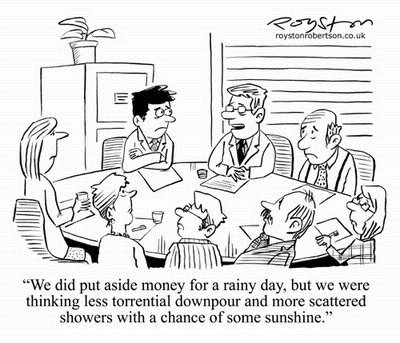
Note: To read Part 1 of Marketing in a Recession, click here.
If I read one more article about “don’t cut your marketing dollars in a recession” I am gonna puke.
C’mon. Be realistic. When times are tight you have to make some fiscal choices.
For the sake of making a point here are the rules for spending:
- If you have never invested in marketing before don’t start now.
- If you have spent significant dollars in marketing in the past you really shouldn’t go “dark” (people will notice), but absolutely cut back.
- If you are somewhere in the middle, figure out where having your message appear is most important and cut everything else.
(Sorry. No charts or escalating algorithms or anything like that).
Rather than talk about budgets and how people “should be marketing in a recession” it seems like marketers should be focused on messaging. And relevance. (maybe not in that order).
Message relevance is key to any marketing activity. But when you are thinking about making each dollar count it seems to take on even more importance.
Bottom line. If a message is relevant and communicated in an interesting way it only needs to be said once to be effective. If it is irrelevant I can spend until I am blue in the face (or my wallet is empty) and it won’t make any difference at all.
Okay, that thought is meaningful whether in a recession or not, but because we are talking about cutting back on spending I imagine everyone should really be taking a closer look at each individual messaging opportunity.
Especially because it ain’t time for fluff. (see Marketing in a Recession Part 1 to get details behind that thought) Companies spending money on corporate “image” campaigns right now baffles me (or maybe befuddles me).
About “non-fluff” messaging. So. What do I mean by relevance?
- Functional first. What does the product or service offer functionally that will enhance the buyers’ lives if they use it. Be clear. Be focused. This isn’t a laundry list.
- Tap into a user need. Need doesn’t necessarily have to be tangible (like “I just need a break”) but it helps if your product or service can explicitly meet a buyers need.
- Value. Make them feel good about the purchase beyond having them buy a widget from anyone. I purposefully put this one third and last. Doesn’t mean it’s not important, it’s just not more important than the first 2.
If I were to summarize relevance in two sentences:
Ease a worry. Enhance a life.
(And please stop talking about reasons why people should spend money in a recession.)
Note: To download a PDF of both parts 1 & 2 of Marketing in a Recession, visit my Thoughts on Business page or click here.
















